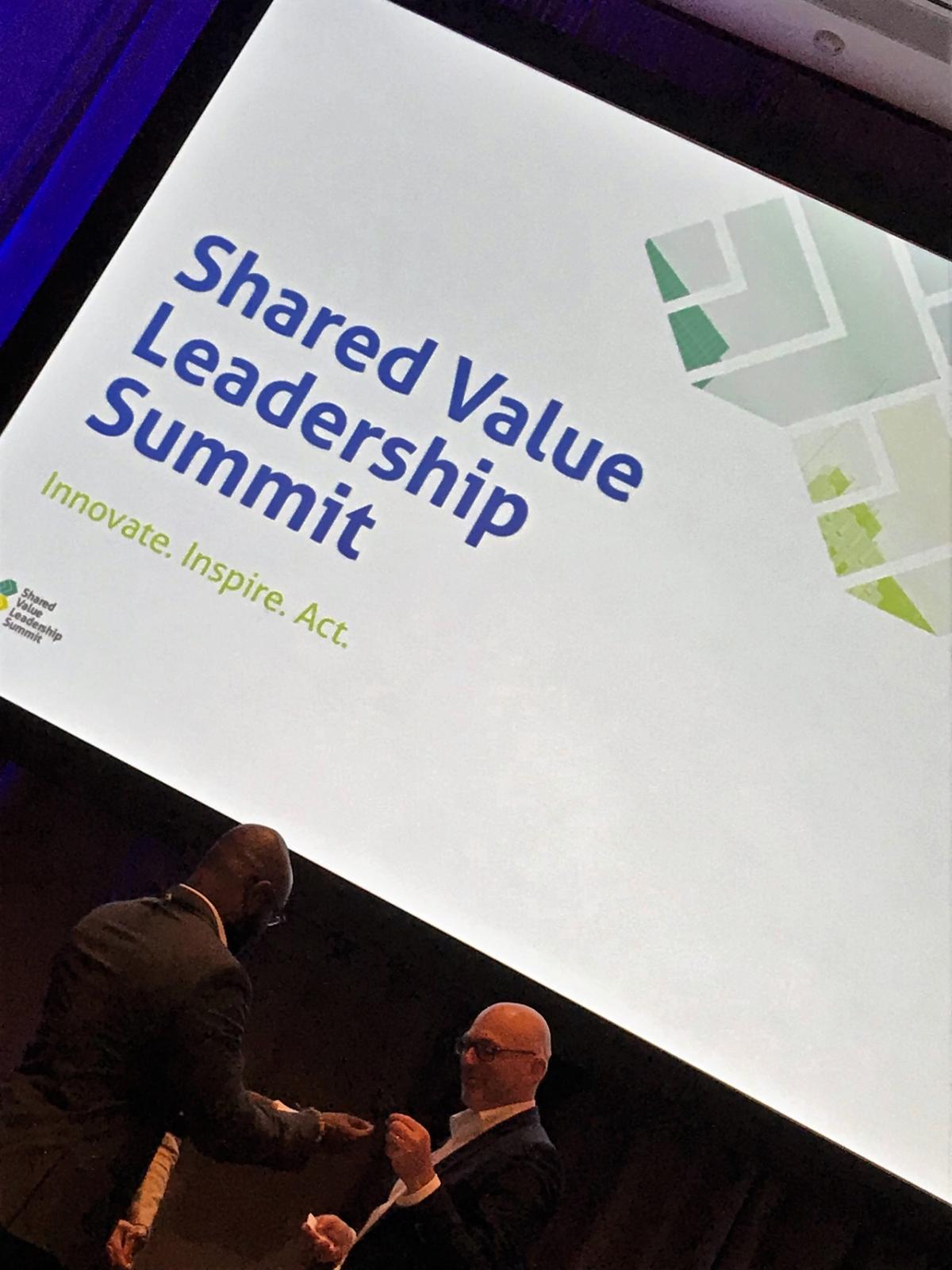Shared Value Summit 2018 Reflection
by Danielle Holly

When Common Impact’s clients ask me what events they should attend to understand the next generation of CSR, employee engagement and for-purpose business, I always point them to the Shared Value Initiative (SVI). SVI held its annual summit this past week in the (finally sunny!) downtown NYC, where hundreds of business, investment and social sector professionals met to hear and discuss the latest in driving a social, environmental and financial bottom line at once.
Here are a few of the headlines I took away from the bustling two-day conference:
Sea Change for Investors: I shared a table with a few Wall Street investors, who were smiling as Michael Porter opened the conference pointing to the “shot heard around the world” -- Blackrock’s Larry Fink statement that business must benefit society, not just the bottom line. Just the day before the conference opened, CNBC announced that two more prominent activist investors, Clifton Robbins of Blue Harbour Group and Barry Rosenstein of Jana Partners, shared their intention to use their investments as a tool for social and environmental change – not in order to “do good” but as a way to drive a longer term, sustainable financial bottom line. The investor community has been one of the sectors within business that has been slowest to adopt the concepts of shared value and a broadened definition of a bottom line. That now seems to be rapidly changing, and has the potential to leapfrog the “for purpose” business movement, as companies start to assess their performance and access to capital based on their societal performance.
Employee Engagement: Humana CEO, Bruce Broussard, in conversation with Porter entitled, “The Business Case for Ecosystem Investment” outlined the insurance company giant’s reframed strategy which places an emphasis on community and preventative health. While Broussard initiated this strategy because it “was the right thing to do” he ended up producing significant business returns – in its stock price, financial performance but, most importantly, Broussard noted, in employee engagement. Gallup places average employee engagement scores at a mere 30% of employees. Humana’s engagement score rose to more than 90% after it rolled out its strategy that helped employees and customers understand that it was in the business of health, not just profit. We then were all treated to an inspiring session led by WeSpire’s CEO Susan Stevens who helped us think about how to build those transformational employee engagement practices at our own organizations.
Partnering with Philanthropy: One fair criticism of the shared value approach has been its lack of attention to the fact that some social challenges don’t and won’t generate business value. These areas underscore the importance of the continuation and growth of philanthropy, and the allocation of resources to those social issues without expectation of return. While Porter and his colleagues did make note of the role of philanthropy this year, it was in a brief reference to “areas of market failure.” As the shared value approach continues to grow in the exciting ways that it has over the past few years, it will become increasingly critical for its thought leaders and practitioners to acknowledge, learn from and collaborate with the current philanthropic forces that meet a critical, ongoing need in society.
The Common Impact team sees these triple bottom line partnerships and practices every day in our work to build meaningful skills-based engagement and pro bono programs. It was such a treat to be amongst this growing crowd of mission-minded professionals that are helping to drive our next generation of business and social change.

